On March 9, 2024, the Miss World 2023 pageant was held to choose a beauty queen once again. The crown went to Krystyna Pyszková of the Czech Republic. To honor this event, we decided to take a look at the history of the contest and find out how the jury’s approach to assessing women’s beauty has changed over the decades.
1950s: it all started with a scandal.

Kiki Håkansson (Sweden), Miss World 1951
In 1951, as part of the Festival of Britain, the Festival Bikini Contest was held, which journalists later named Miss World. This event became a scandal because in those days a bikini was considered indecent.
Swedish beauty Kikki Håkansson became the winner of this first pageant. And to this day, she remains the only winner to have received her crown while wearing a bikini. Later, the finalists would wear a one-piece swimsuit or evening gown to the awards ceremony.

Denise Perrier (France), Miss World 1953, and Marita Lindahl (Finland), Miss World 1957
Despite the 1951 bikini scandal, the contest founder Eric Morley was pleased with the public attention and decided to hold the pageant annually. His requirements for potential participants were as follows: single women without children aged 17 to 27.
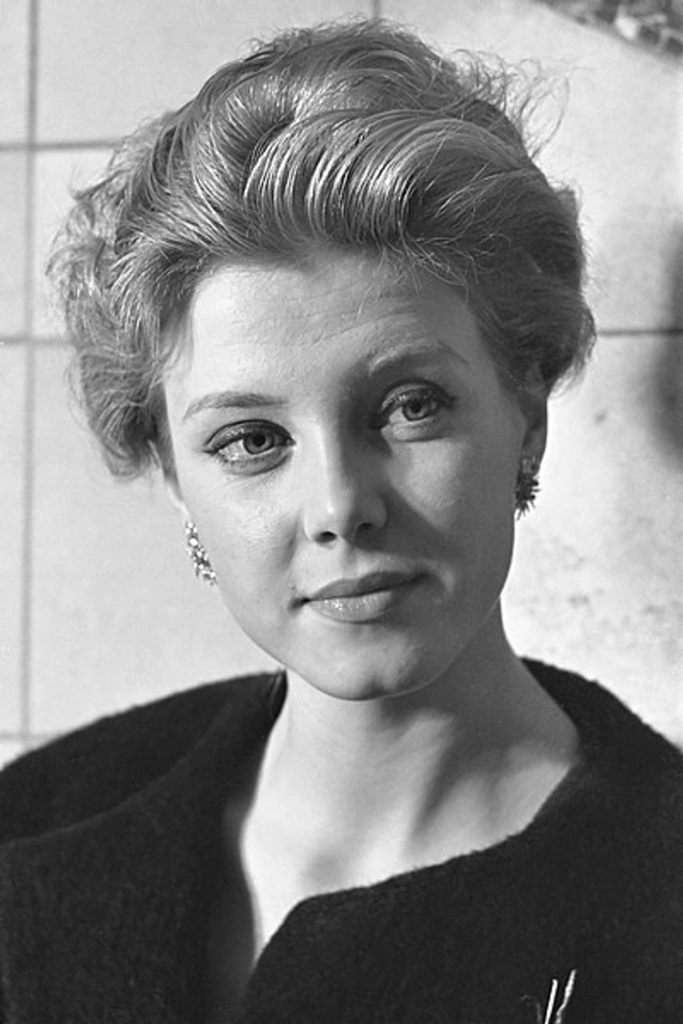
Corine Rottschäfer (Netherlands), Miss World 1959
In 1959, a major British television channel agreed to broadcast the pageant, thus making it even more popular. Corine Rottschäfer found herself in a delicate situation before the awarding ceremony when she discovered that her evening gown had holes in it. Another contestant lent Corine the dress and eventually finished third, while Corine became the winner.
1960s: Miss World is gaining momentum.

Katharina Lodders (Netherlands), Miss World 1962
In the 1960s, the Miss World pageant became one of the most watched television shows. The cash prize for the winner was increased from £500 to £2,500. In 1961, the requirements for contestants were also changed: the upper age limit was now 25 years old.
Katharina Lodders, who was crowned in 1962, addressed these criteria in her own way. On collecting the award, she said out loud, «I don’t think I’m the most beautiful girl in the world — I am the most beautiful girl here.»

Ann Sidney (Great Britain), Miss World 1964
In 1964, the winner was Ann Sidney, who later made a career in the movie industry. By the way, Morley introduced a new rule that same year: he forbade the mothers of contestants to accompany their daughters. The reason why was because the mother of one of the girls caused a lot of inconvenience to the organizers, getting involved in their work.
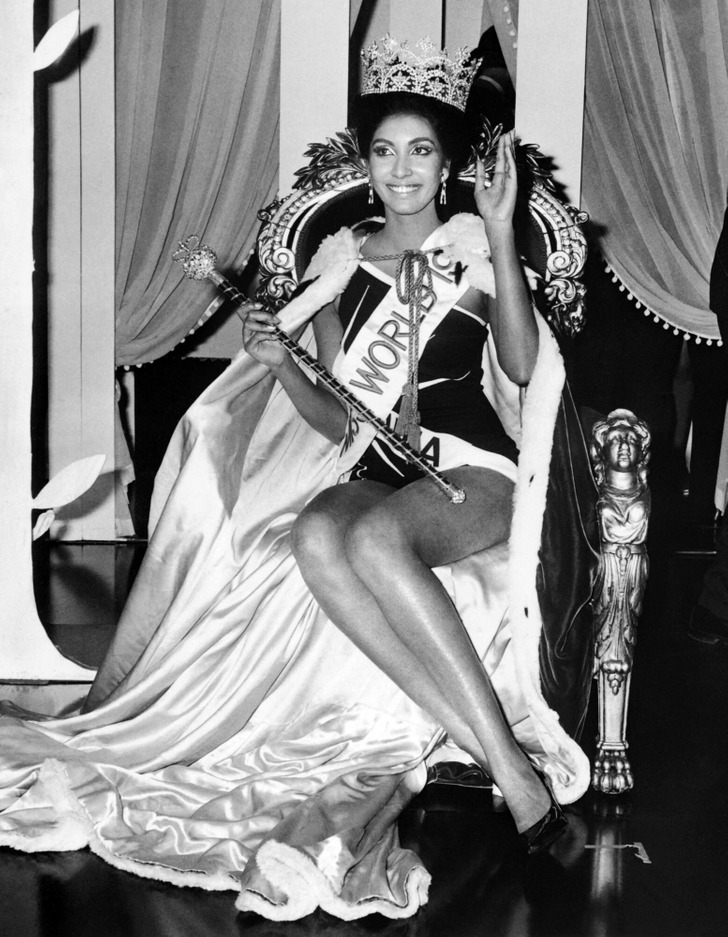
Reita Faria (India), Miss World 1966
In the late 1960s, the contest became even bigger. In 1966, Morley sent invitations to more than 70 countries, 66 of which were happy to respond. And in 1968, for the first time in the history of the event, a married girl was allowed to participate. In the 1970s, however, a strict criterion for the marital status of contestants was reintroduced: single only, period.
1970s: feminists change the essence of the pageant.
Jennifer Hosten (Grenada), Miss World 1970
The beginning of the decade was marked by a new scandal. In 1970, a week before the pageant, British feminists claimed that Miss World objectified women and threatened to interrupt the show. And they did it. When the event was in full swing, some female guests rose from their seats and began to blow whistles, jingle rattles and shout slogans. Later, the movie Misbehaviour starring Keira Knightley was based on these events.
In 1970, Jennifer Hosten won the crown. She became the first black woman to win it.
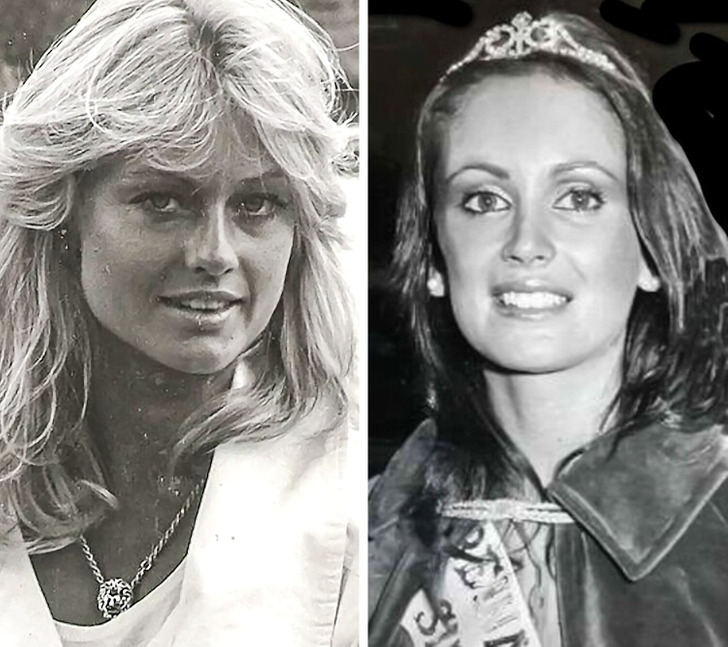
Marie Stävin (Sweden), Miss World 1977, and Silvana Suárez (Argentina), Miss World 1978
The conflict with feminists forced the organizers to think about the message the pageant was sending to the world. And in 1972, Eric Morley and his wife announced that the event would now be held under the slogan «Beauty With a Purpose.» The contestants were also required to present their charity projects to the jury.
1980s: «Beauty With a Purpose»
Mariasela Álvarez (Dominican Republic), Miss World 1982
In the 1980s, the slogan «Beauty With a Purpose» got another meaning: new tests of intelligence and personality were added to the contest program. In the eyes of the judges, the contestants’ personal qualities became as important as their looks.
Giselle Laronde (Trinidad and Tobago), Miss World 1986
In the second half of the decade, the contest became criticized again. The public in different countries didn’t like the fact that girls were judged only by representatives of Western countries. And in 1986, Morley decided to hold the preliminaries of the contest in Macau and give the Eastern judges the opportunity to select the contestants. The winner that year was Giselle Laronde from Trinidad and Tobago. This was the first time a representative of this country won the crown.
Ulla Weigerstorfer (Austria), Miss World 1987
And in 1987, the organizers ignored their own rule that allowed to participate girls aged only 17 to 25 and let a 26-year-old beauty to compete for the crown. Later, the upper age limit would be made 27 again.
1990s: crisis
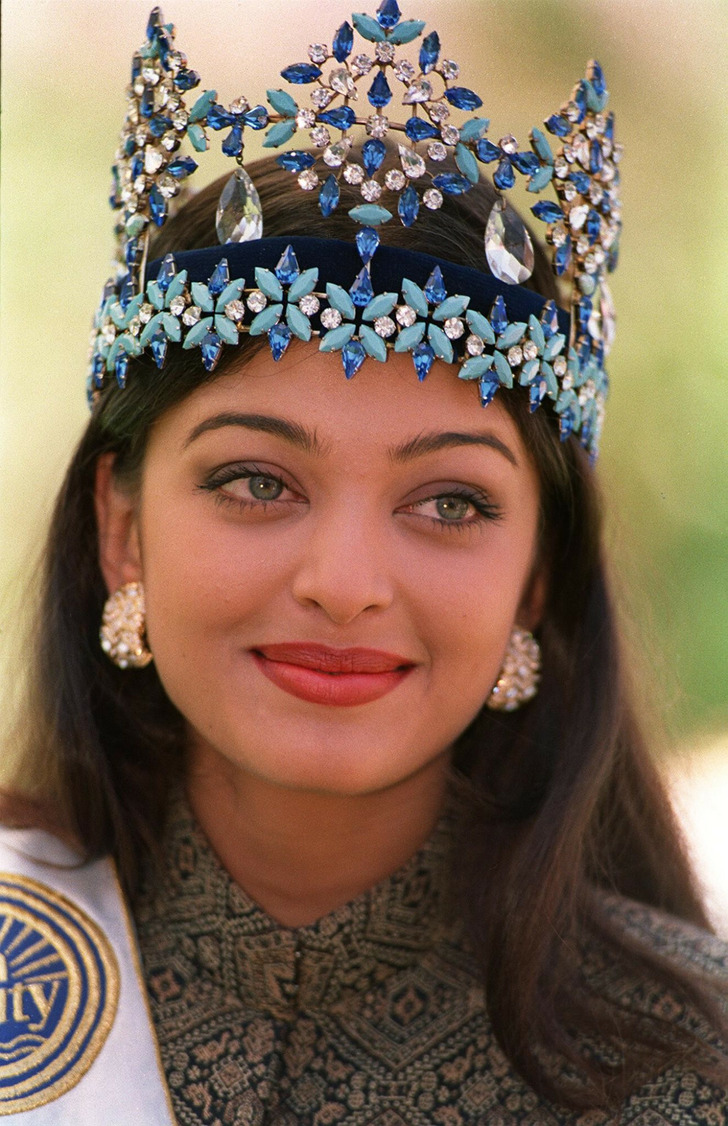
Aishwarya Rai (India), Miss World 1994
In the early 1990s, the popularity of the contest began to decline, and major TV channels stopped broadcasting it. But Morley wasn’t going to give up and managed to find ways to organize the contest at a lower cost.
Yukta Mookhey (India), Miss World 1999
In the second half of the decade, the organizers decided to gather a jury of representatives of different professions from all over the world in order to increase the interest of the audience. So, now beauties were judged by actors and actresses, athletes, magazine editors, and top models from different countries.
2000s: a woman takes the reins.
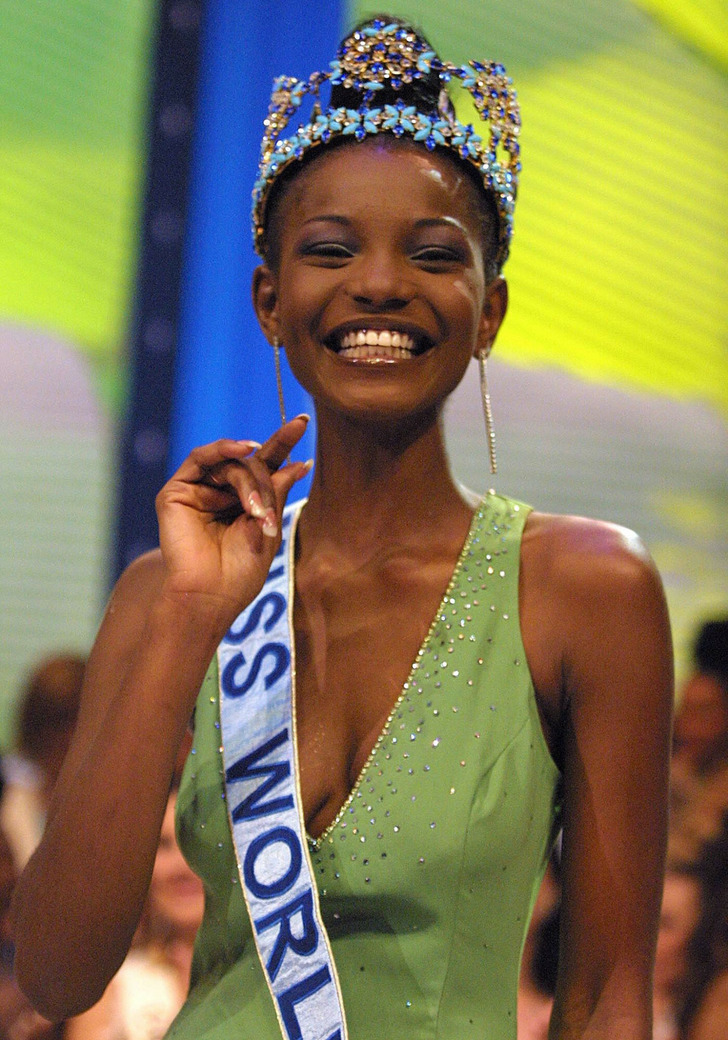
Agbani Darego (Nigeria), Miss World 2001
In 2000, Eric Morley passed away, so his wife Julia took on her husband’s work and decided to make some adjustments. For example, she called the pageant «stupid and horrible» and promised to make it «more positive» for women. She condemned the part of the show where girls had to first parade around in swimsuits and then give interviews about their life ambitions. «Not because I thought there was something wrong, horrible, and unnatural about swimsuits, but I thought you generally don’t feel comfortable if someone is interviewing you in a tux, and you are in a bathing suit,» Julia said.

Rosanna Davison (Ireland), Miss World 2003, and Kaiane Aldorino (Gibraltar), Miss World 2009
In 2004, Julia Morley surpassed her spouse by managing to gather a then record number of participating countries — 107 girls took part in the competition.
2010s: no swimsuits

Megan Young (Philippines), Miss World 2013
In 2013, the contestants traveled to Bali. It was the first time the event was held in Southeast Asia. Also, for the first time in the history of the contest, a girl from the Philippines, Megan Young, won the crown.

Manushi Chhillar (India), Miss World 2017
Julia Morley, who had previously voiced her discontent with overly revealing costumes of contestants,
decided to remove the swimsuit competition from the pageant in 2015. She said, «We are really not looking at her bottom. We are really listening to her speak.»
2020s: what’s next?

Karolina Bielawska (Poland), Miss World 2021
The first event of the new decade wasn’t really big. In 2022, the number of countries participating in the contest was the smallest since 2003 — only 97. The winner was Karolina Bielawska from Poland. Next time, the Miss World jury gathered in 2024 and crowned Krystyna Pyszková from the Czech Republic.

Krystyna Pyszková (Czech Republic), Miss World 2023
Since modern trends criticize various beauty standards, there is a possibility that the Miss World organizers will choose to stop using any selection criteria for future contestants, following the example of Miss Universe. In 2023, the latter removed the upper age limit for contestants. And since Julia Morley suggests that it is personality that should be evaluated, we are sure that changes in the contest are not long to wait.
Speaking about Miss Universe. Here’s what 16 Miss Universe winners look like now.
Preview photo credit Harry Pot / Nationaal Archief / Wikimedia Commons, CC BY-SA 3.0 NL DEED, Historia de la belleza / Wikimedia Commons, EAST NEWS, Rajanish Kakade / Associated Press / East News
Man and Woman on a Blind Date Surprised to Find Their Kids are Mirror Images of Each Other

Emily rushed into the Italian restaurant, her rainbow-colored clown wig bouncing with each step. She spotted Damon in a corner, wearing a paper hat, and their eyes locked as she approached. “Emily!” Damon greeted her, rising from his chair
Their banter was lively, with jokes about Emily’s wig and a shared sense of ease. As they delved into conversation, Emily couldn’t help but notice Damon’s son in a photo on his phone. The resemblance to her own son, Bradley, was uncanny, sparking confusion and intrigue.
The discovery led them on a quest for answers, with Damon deciding to confront his ex-wife while Emily stumbled upon a letter hinting at a life-altering secret hidden by her late husband, Jack.
Emily’s mind raced as she recalled the day Jack had brought home Bradley, swaddled in a dinosaur blanket, a moment tinged with both joy and uncertainty. Now, facing the possibility of a hidden truth about Bradley’s origins, Emily delved into Jack’s past, hoping for clarity.
Meanwhile, Damon revisited the facility where his ex-wife resided, seeking answers about the night of their son’s birth, shrouded in mystery and confusion due to Naomi’s battle with mental illness.
As Emily uncovered Jack’s letter, revealing a web of lies and a newborn rescued from an alley, Damon grappled with Naomi’s fragmented memories and the possibility of a long-lost twin.
Their paths converged as they shared their discoveries, grappling with the implications of a shared past that could redefine their futures. Amidst the turmoil, Bradley’s presence loomed large, his confusion and pain mirroring their own.
In a moment of vulnerability and acceptance, they vowed to face the truth together, united by a newfound sense of family and a determination to navigate the unknown with courage and compassion.
As they prepared for the journey ahead, uncertainty lingered, but so did hope, a beacon guiding them through the darkness towards a future forged by honesty, resilience, and the bonds of love.



Leave a Reply